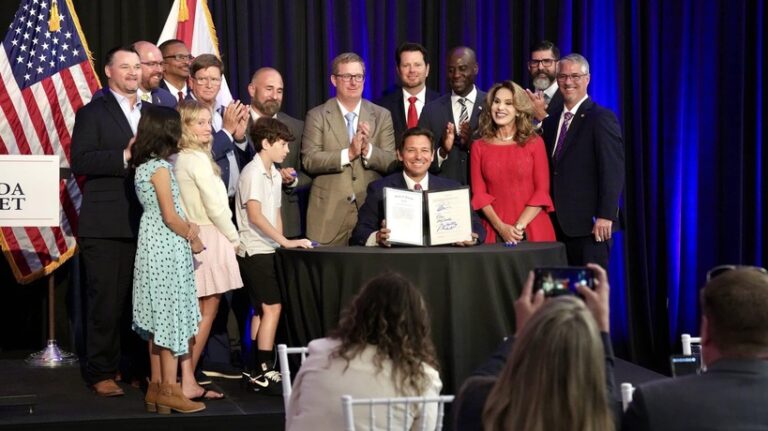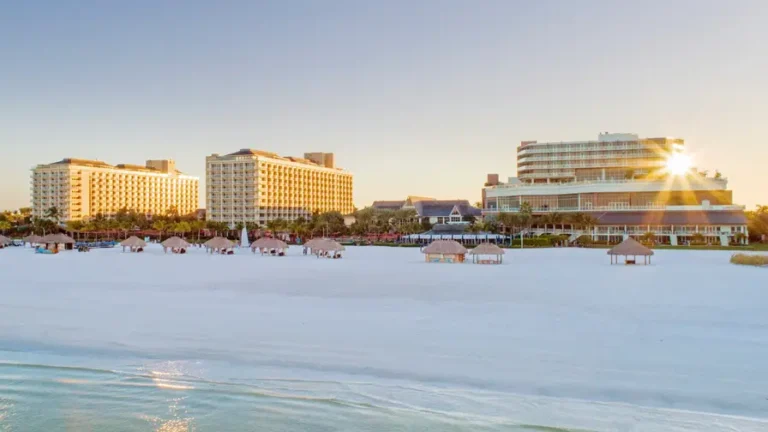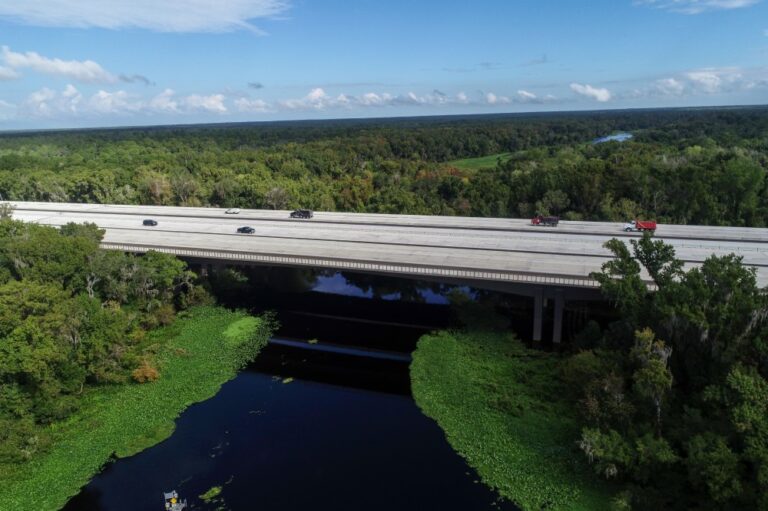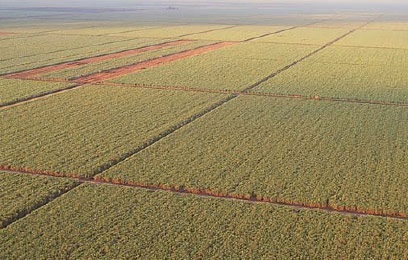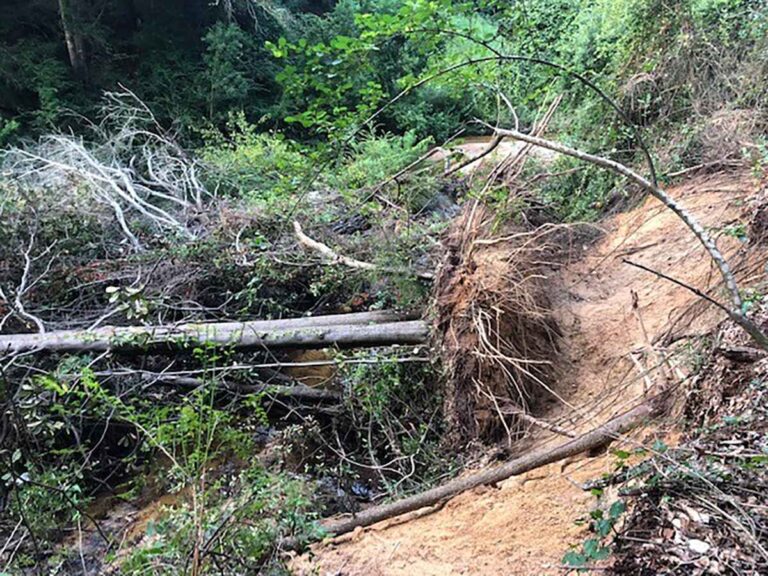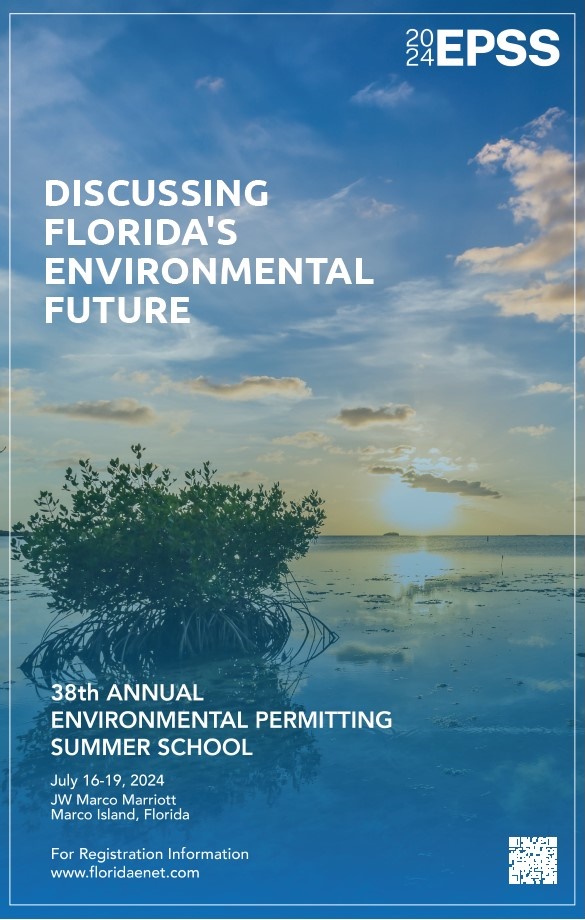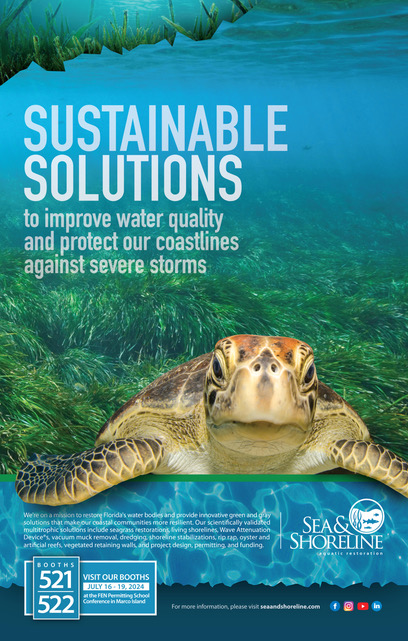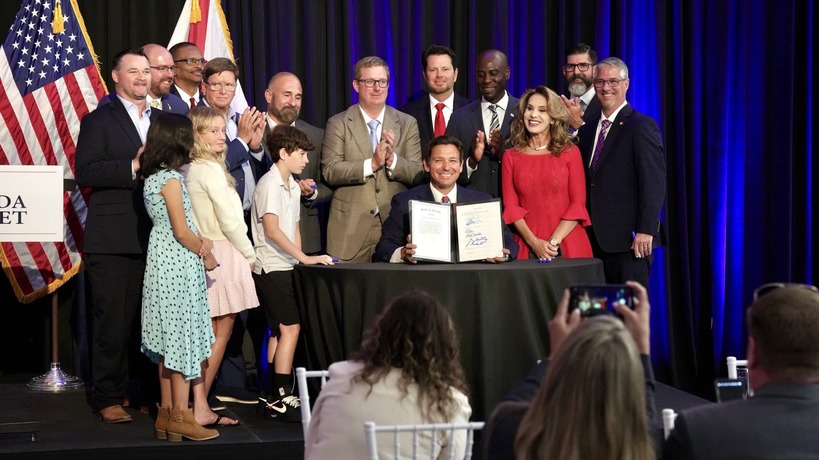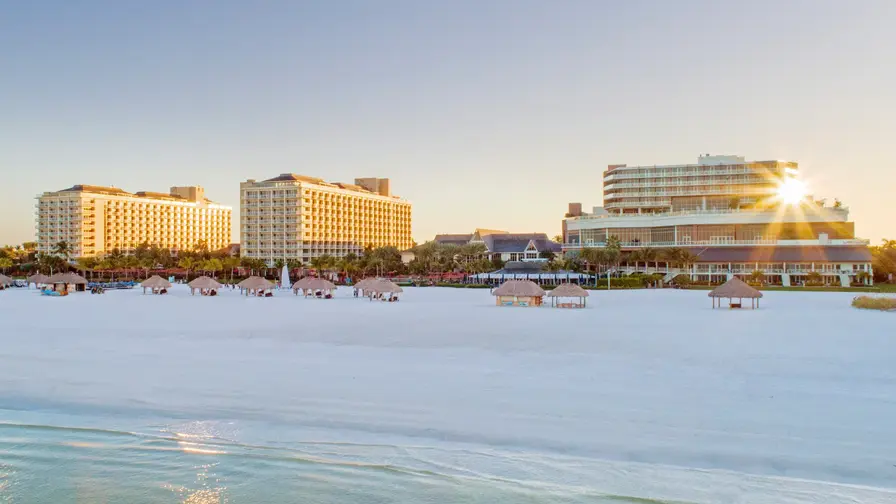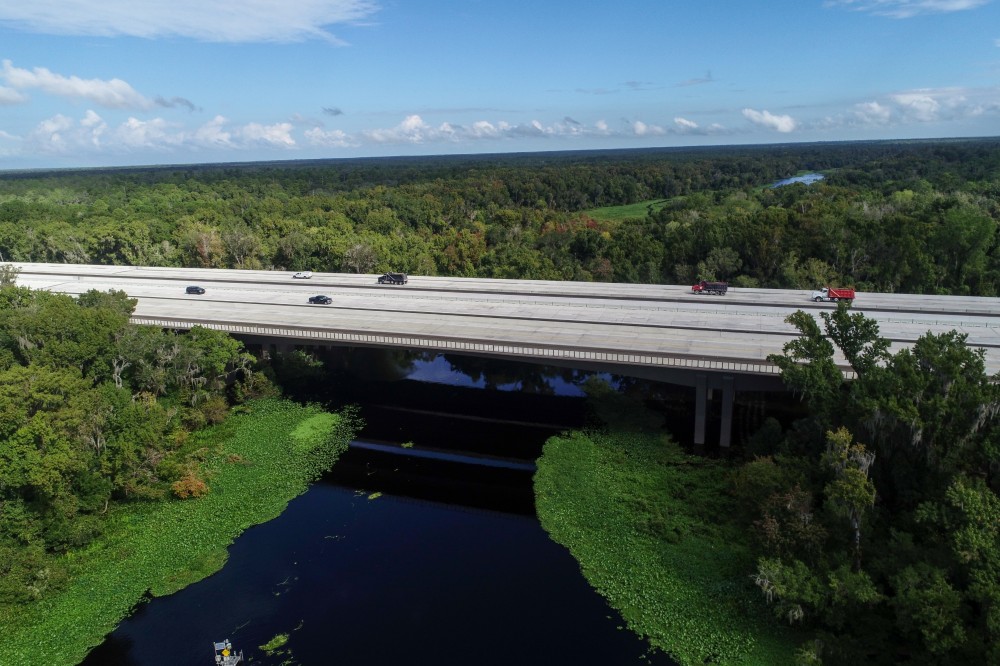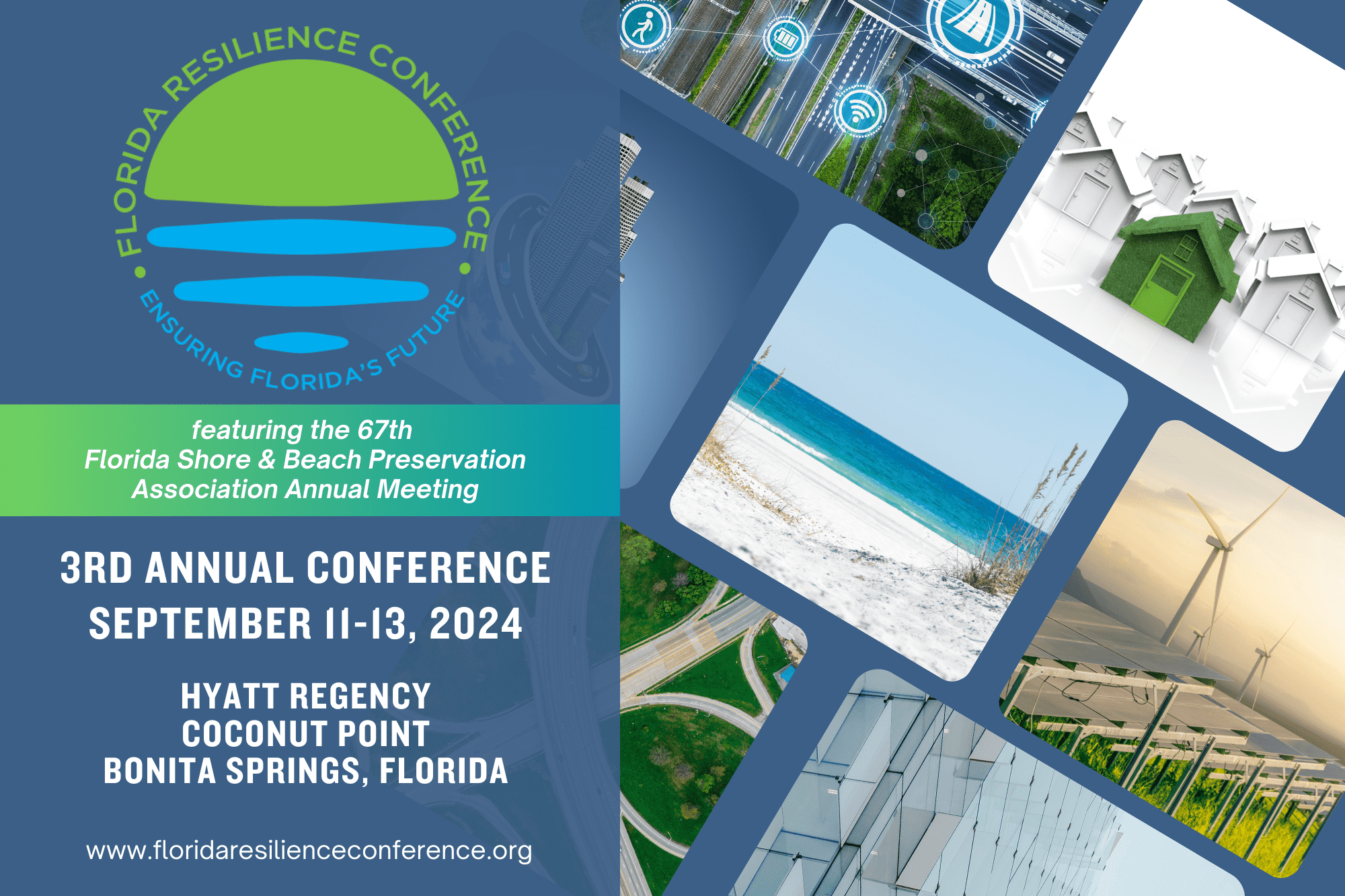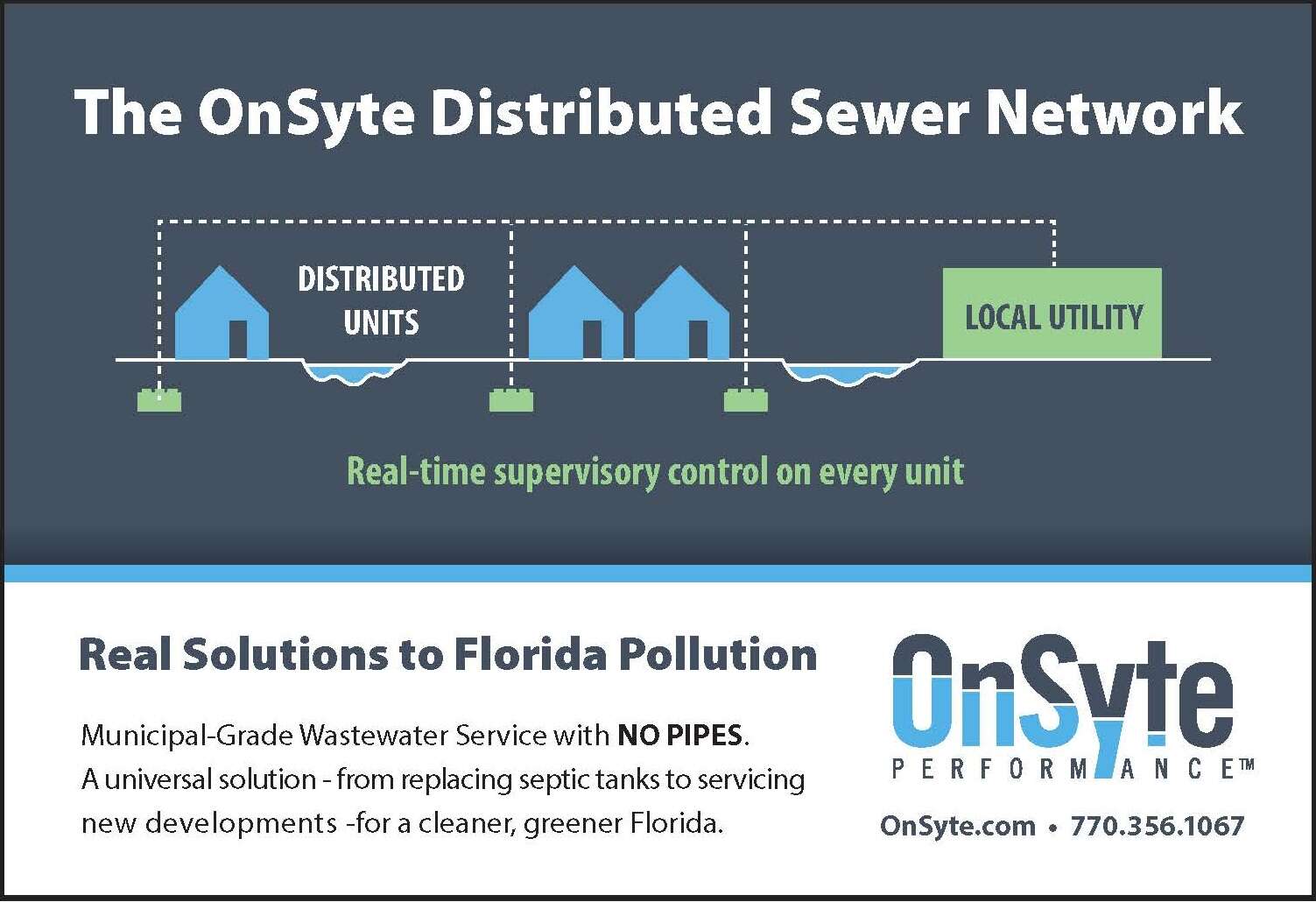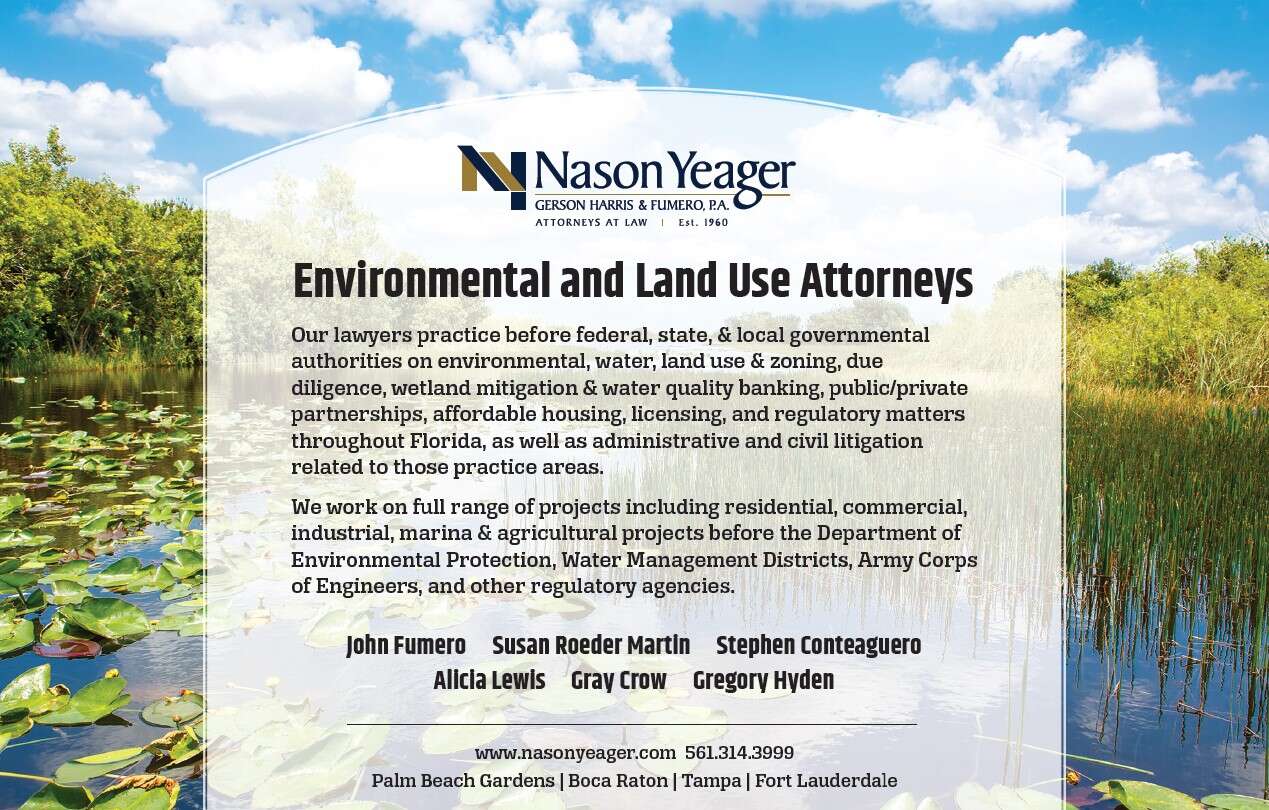STAFF & WIRE REPORTS
Indian River Lagoon Restoration Showing Progress
The St. Johns River Water Management District is actively monitoring restoration efforts to reestablish seagrass abundance within Florida’s Indian River Lagoon (IRL). The IRL has experienced significant seagrass loss from degraded water quality and recurring harmful algal blooms, according to the District. Recent observations show there is cause for hope.
The District conducts biannual visual assessments and official mapping of seagrass growth. According to data collected in the summer of 2023, the extent of seagrass increased since last measured in 2021. The greatest improvement was observed in the northern IRL and southern Mosquito Lagoon, while seagrass in the southern IRL experienced a slight decline. The increase in seagrass is being attributed to improved water clarity, the absence of major bloom events, and years of collaborative efforts implementing projects along the lagoon’s coast.
Roughly $390 million has been spent over the last five years to enhance water quality in the region. Funding has been leveraged by incorporating contributions from local, regional, and state partners. Nearly 70 water quality improvement projects are underway in varying stages of progress along the lagoon. Restoration initiatives vary from connection of septic tanks to central sewer systems to improvement of wastewater treatment facilities all with the common goal of reducing the influx of harmful nutrients into the waterway.
The District urges residents to contribute to the IRL’s preservation by adopting environmentally friendly practices, such as Florida-Friendly Landscaping principles. These include using native plants, water conservation, responsible fertilization, and reducing stormwater runoff.
SJRWMD invests in sustainable agriculture initiatives in the Lower St. Johns River Basin
The St. Johns River Water Management District recently executed three contracts totaling nearly $190,000 for projects designed to demonstrate proactive efforts to safeguard the long-term sustainability of agriculture within the Lower St. Johns River Basin.
The sustainable agriculture initiative is a collaborative effort of multiple agencies, including the Florida Department of Environmental Protection , the Florida Department of Agriculture and Consumer Services, and the District. The selected projects represent a strategic investment in the future of agriculture, with a focus on implementing targeted solutions to address key challenges faced by local growers.
The project at L&M Farms of North Florida in Putnam County will undertake land leveling and pipe installation over 831 acres to optimize water distribution and enhance irrigation efficiency.
DeLee Produce LLC in St. Johns County is adopting GPS driven precision fertilizer application technology, enabling more accurate placement and adjustable-rate application to reduce fertilizer usage on row crops, according to the District.
The Ben Wells Produce LLC in St. Johns County will deploy precision land leveling equipment to optimize land surface topography, promote efficient water utilization and enhance farm productivity.
Projects are eligible for funding up to 75 percent of engineering, design and construction costs under the District’s cost-share program. Award recipients commit to covering maintenance expenses throughout the project’s lifecycle. Additionally, where applicable, they must modify consumptive use permits to reflect the water savings achieved through District funding, reducing the amount of water they are eligible to withdraw.
Two Florida State Parks Recognized on Dr. Beach’s 2024 Top 10 List
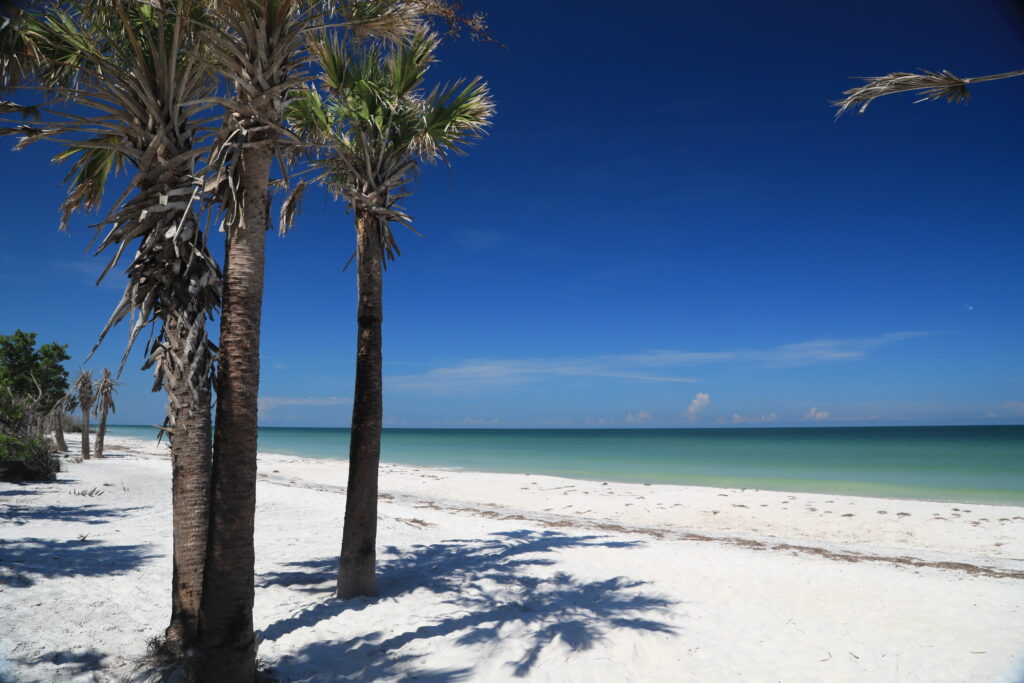
The Florida Department of Environmental Protection recently announced two Florida State Parks are listed among the best beaches in the nation on Dr. Beach’s Top 10 Beach List for 2024. Dr. Beach, Stephen P. Leatherman, is a professor at Florida International University who has ranked the top beaches in the United States each year since 1991. This year Dr. Beach ranked Caladesi Island State Park in Dunedin No. 4 and Delnor-Wiggins Pass State Park in Naples No. 8.
Both parks provide white sand beaches, opportunities to spot local wildlife, and state-of-the-art amenities for visitors and families to enjoy.
“Caladesi Island and Delnor-Wiggins Pass state parks offer a look at some of the finest natural resources in the world,” said Florida State Parks Director Chuck Hatcher. “We take great pride in our efforts to preserve and protect these gorgeous beaches for everyone to enjoy.”
Caladesi Island State Park is located on an offshore island near Dunedin along Florida’s Gulf Coast. The park is accessible only by ferry or private boat. Swimmers, sunbathers and beachcombers can enjoy the softness of white crystalline quartz sand, while a bayside mangrove forest provides a shaded paddling opportunity. The park’s main historical attraction, Scharrer Homestead, is located in the interior of the island among live oaks. The park also boasts a 3-mile nature trail, surf-fishing and boating.
Delnor-Wiggins Pass State Park in Naples is home to numerous shorebirds and wildlife. Visitor activities include snorkeling on the reef, hiking, birdwatching, fishing, picnicking and paddling. Kayaking or paddleboarding the Wiggins Pass into the Gulf of Mexico is considered a wonderful way to spend an afternoon at sea.
Dr. Julian G. Bruce St. George Island State Park took first place in 2023, while Grayton Beach State Park was the top spot in 2020.
South Florida Water Management District’s Draft 2024 Sea Level Rise and Flood Resiliency Plan Released
The annually updated South Florida Water Management District (District) Sea Level and Flood Resiliency Plan compiles a comprehensive list of priority resiliency projects to reduce the risks of flooding, sea level rise, and other climate impacts on water resources and increase community and ecosystem resiliency in South Florida. The Plan recommends updates and enhancements for water management infrastructure throughout the Central & South Florida (C&SF) Flood Control System and the Big Cypress Basin with the goal of implementing effective, resilient, sustainable, integrated basin-wide solutions.
The District works with state and federal partners on different projects, including grant agreements for infrastructure hardening and the FEMA Building Resilient Infrastructure and Communities (BRIC) Program.
The District and the U.S. Army Corps of Engineers are also partnering to develop a C&SF Flood Resiliency Study, and the follow up C&SF Comprehensive Study to recommend adaptation strategies in the communities served by the C&SF Systems.
SFWMD and USACE Celebrate Major Milestone for Key Everglades Restoration Project in Southwest Florida
The South Florida Water Management District and the U.S. Army Corps of Engineers along with state officials and stakeholders recently celebrated another milestone, the completion of plugging of Faka Union Canal, a major canal and important component in the Picayune Strand Restoration Project in Southwest Florida.
“The Picayune Strand Restoration Project has been many years in the making, and the plugging of this canal marks a significant milestone for this massive project. Under the direction of Gov. Ron DeSantis to expedite Everglades restoration, the water management district continues to work with its partner, the U.S. Army Corps of Engineers to accelerate the filling of canals,” said Charlette Roman, SFWMD Governing Board Member.
The plugging of the Faka Union Canal marks one of the final components needed to accomplish the Picayune Strand Restoration Project’s goal of restoring the natural hydrology of more than 55,000 acres of native wetlands and uplands in Florida Southwest. Three out of the four canals to be disabled are now plugged. The District anticipates the restoration project will result in improved flows of water into Collier Seminole State Park, Ten Thousand Islands National Wildlife Refuge and the Rookery Bay National Estuarine Research Reserve.
Environmental benefits of the project include restoration of wetlands, reduced drainage of adjacent sensitive ecosystems, restoration and enhancement of habitat for fish and wildlife including the Florida Panther, improved aquifer recharge to protect underground water supplies and prevent saltwater intrusion and reduced freshwater releases/improved health of downstream estuaries.

2024 Florida Python Challenge Scheduled
The 2024 Florida Python Challenge will take place Aug. 9-18. Both professional and novice participants will be afforded the opportunity to join in the effort to remove pythons from the Everglades ecosystem. The annual 10-day competition and conservation effort is a partnership between the Florida Fish and Wildlife Conservation Commission (FWC) and the South Florida Water Management District (SFWMD) that promotes the protection of native wildlife through the removal of Burmese pythons.
Invasive pythons are one of the most destructive and harmful species in America’s Everglades. They threaten our precious native ecosystem by preying upon the wildlife that lives there, including wading birds, mammals, and other reptiles.
Since 2017, more than 13,600 pythons have been removed since the FWC and the SFWMD teamed up to combat this invasive species.
The Southwest Florida Water Management District Governing Board Elects Officers for 2024-2025 Term
The Southwest Florida Water Management District Governing Board recently elected officers for the 2024-2025 term.
Governing Board members are unpaid, citizen volunteers who are appointed by the Governor and confirmed by the Florida Senate. The Governing Board sets policy for the District, whose mission is to protect water resources, minimize flood risks, and ensure the public’s water needs are met.
- Michelle Williamson was elected chair of the Governing Board. Williamson represents Hillsborough County and is the operations manager of G&F Farms. Williamson was appointed to the Governing Board in August 2016 and reappointed in December 2020.
- John Mitten was elected vice chair of the Governing Board. Mitten represents Hernando and Marion counties and is the franchise owner of Chick-fil-A in Spring Hill. Mitten was appointed to the Governing Board in October 2020.
- Jack Bispham was elected secretary of the Governing Board. Bispham represents Manatee County and is the owner and operator of Red Bluff Plantation. Bispham was appointed to the Governing Board in November 2019 and was reappointed in May 2021.
- Ashley Bell Barnett was elected treasurer of the Governing Board. Bell Barnett represents Polk County and is a former educator and community advocate. Bell Barnett was appointed to the Governing Board in December 2020 and was reappointed in August 2023.
The officers will assume their positions for the 2024-2025 term 24 hours before the June Governing Board meeting.
Eight area projects recommended for springs funding by SRWMD Governing Board
The Suwannee River Water Management District (District) Governing Board recommended eight projects to the Florida Department of Environmental Protection (DEP) for funding.
The projects include four local government projects and four projects to a non-profit organization for a total of more than $66 million. The funding request is part of DEP’s springs and watershed restoration program that provides funding for projects that improve the quality and quantity of the state’s water resources. DEP works with the water management districts, local governments, and other stakeholders to identify and implement springs projects that achieve the program’s goals.
“For our small communities and cooperators, this funding is often key to whether a project moves forward or not. Without it, our area would struggle to implement critical water supply, water quality and land conservation projects, causing our natural resources to suffer and growth to stall,” said District Executive Director Hugh Thomas.
This year’s recommendations include:
- City of Newberry Regional Water Quality Improvements – Alachua County – This $49 million project will allow the City of Newberry to remove septic tanks and upgrade to advanced wastewater treatment systems to meet required compliance limits.
- Trenton Alternative Water Treatment Wastewater Treatment Facility Improvements – Gilchrist County – This multi-year project will expand the current wastewater treatment facility and reduce 5,411 pounds of total nitrogen per year to the groundwater. The Town of Trenton requested $2.3 million for the first year of the project.
- Bronson Septic Tank Phase Out Project, Phase 3 – Levy County – This multi-year project will remove 270 septic systems, which will be converted to central sewer. The project will reduce 1,611 pounds of total nitrogen per year to the groundwater in the Silver River and Upper Silver River/Rainbow Spring Group and Rainbow River BMAP. Bronson has requested $1.2 million for the first year.
- Bascom Norris / 100A Septic to Sewer Project – Columbia County – As part of this multi-year $9.3 million funding request, 119 septic systems will be converted to central sewer to reduce more than 1,100 pounds of total nitrogen per year in the Ichetucknee Springs Priority Focus Area. Completion of this project will also prevent the installation of up to 79 new septic systems.
- Ladson Tract Conservation Easement – Jefferson and Taylor counties – This $1.6 million project includes purchase of a conservation easement on the Ladson Tract to protect surface water critical to Nuttall Rise, a first-magnitude spring, as well as the Wacissa and Aucilla rivers. This match funding request was made by Tall Timbers Research Station and Land Conservancy.
- Eikel Farm Ichetucknee – Columbia County – Alachua Conservation Trust will apply the proposed $402,750 and matching funds from the NRCS cost-share program for the acquisition of 179 acres in the Ichetucknee Springs Priority Focus Area to protect and manage private land to benefit water and wildlife.
- Evergreen Ponds – Columbia County – This $721,502, 451-acre land conservation easement is a 50% match for NRCS funds providing water resource protection in the Ichetucknee Springs Priority Focus Area. This funding request was made by Alachua Conservation Trust.
- Devil’s Ear Recharge – Gilchrist County – A request for $660,000 by Alachua Conservation Trust will provide a match to the NRCS funds for the conservation easement of 355 acres of high recharge soils and managed pasture in the Devil’s Ear Priority Focus Area for water resource protection.
DEP Acquires 4,808 Acres in the Red Hills Region
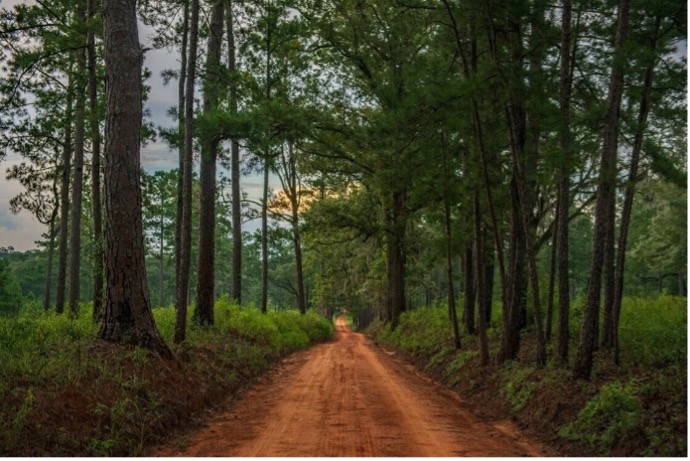
The Florida Department of Environmental Protection purchased a 4,808-acre conservation easement in Leon County within the Red Hills Conservation Florida Forever Project. The acquisition extends from Lake Iamonia to Old Centerville Road. The newly acquired property will protect surface waters and wetlands, support groundwater recharge functions and provide wildlife habitat and sustainable forestry for the region.
The additional property contains half of Foshalee Slough, which is important to regulating overflow during flooding events for Lake Iamonia and the Ochlocknee River. It is also within the Florida Wildlife Corridor and the Northwest Florida Sentinel Landscape.
“These types of acquisitions are essential to further conserve our water, our wildlife and the unique natural landscapes people associate with our state,” said DEP Secretary Shawn Hamilton.
The Red Hills Conservation Florida Forever Project includes five tracts of land in Jefferson and Leon counties. Following the successful conservation easement acquisition over the Norias Tract in 2022, Cherokee Tract marks the next step in safeguarding undeveloped land in a region highly susceptible to development pressures. This move not only protects regional biodiversity but also ensures the resilience of natural systems.
DEP’s Deepwater Horizon Program Helps Fund Carrabelle Septic to Sewer Project
The Florida Trustee Implementation Group has approved use of Natural Resources Damage Assessment funds for the City of Carrabelle’s Lighthouse Estates Septic Tank Abatement-Phase II Project in its Restoration Plan 1: Habitat Projects on Federally Managed Lands for nutrient reduction, water quality, and provision and enhancement of recreational opportunities.
DEP executed an agreement with the Northwest Florida Water Management District in March 2019 to oversee the Trustee’s designated work. The District funded Phase I of septic tank abatement and executed an agreement with the city who contracted the work.
DEP is providing approximately $3.2 million to improve water quality in watersheds injured by the Deepwater Horizon oil spill. The project improves water quality and will help to reduce the potential for beach closures, restrictions on shellfish harvesting, and human health impacts from microbial pathogens. Additionally, nitrogen loading to St. George Sound and Apalachicola Bay from the Lighthouse Estates area will be reduced due to the significantly improved water quality treatment achieved by the city’s wastewater plant as compared with that provided by the individual septic systems.
UF Online Launches New Biology Major for Fall 2024
The University of Florida will offer a new fully online major for Entomology & Nematology starting in fall 2024 as a part of its larger push to increase access for students in high-demand fields and better meet the needs of Florida’s workforce.
Entomology & Nematology, to be offered by the College of Agricultural and Life Sciences, delves into the world of insects and nematodes and prepares students for careers in academia, private industry, government, and beyond. Online students will be able to choose between two Biological Science of Insects or Urban Pest Management and will have opportunities to engage in undergraduate research or industry internships.
Students will engage in courses covering topics such as ecology, animal behavior, physiology, evolution, biodiversity conservation, pest management, and research according to their chosen specialty. The University notes that the skills gained through these courses and other experiences will open doors to a variety of impactful and rewarding careers.
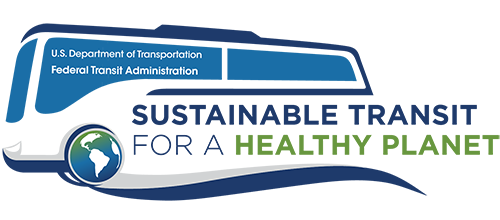
US DOT Releases Guide to Resiliency Planning
The USDOT (DOT), Federal Transit Administration Office of Environmental Policy and Programs (FTA) has released a comprehensive guide to assist transit agencies, local governments, metropolitan planning organizations, and other entities responsible for planning, funding, operating, or coordinating with transit agencies to anticipate, adapt to, and recover from service disruptions caused by extreme weather events, natural disasters, and climate change impacts.
The FTA crafted the Transit Resilience Guidebook (Guidebook) to provide recommendations and examples of how to identify and address climate vulnerabilities and risks and build resilience into transit assets while ensuring priority is given to protecting vulnerable populations.
FTA notes the American public depends on public transportation to access critical services whether located in communities that are large or small, urban, or rural. The Guidebook recognizes the threat the increasing frequency and intensity of weather events and climate hazards represent to transit and the probability these events will undermine the reliability, safety, and efficiency of public transportation systems. FTA characterizes the effects of transit system interruption as being particularly acute for vulnerable or transit-reliant populations.
Full text of the Guidebook is available at https://www.transit.dot.gov/research-innovation/ftas-transit-resilience-guidebook


